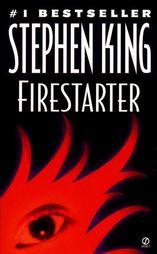1. Bison
2. Ethiopian Food
3. Oysters Rockefeller
4. Shark
5. Escargot
6. Frog legs
7. Chicken and Waffles
8. Hemp Vodka
9. Uni
Having a long engagement (22 months) was a controversial decision that we made and continue to be happy about. Since we decided on our wedding date more than a year in advance, we realized we created a date that would be important to us for the rest of our lives but that this year was just another day. So of course we saw the opportunity to invent a new holiday- the "Anti-versary." Also colloquially referred to as the -1 Year Anniversary.
Ronnie made plans on his own and then asked if I wanted them to be a surprise, which of course I did. And for the first time in a very long time (proposal included) I was completely in the dark.
We took the metro into the city (I got one thing right- I guessed that we would get off at Metro Center) and then walked a mildly long and somewhat shady walk to Busboys and Poets. At first I was not happy because I thought Ronnie had signed me up to read some poetry. But once he convinced me we were just going to have some drinks and check out the situation (for perhaps later poetry readings) I was excited.
Their bar menu had my favorite thing- interesting cocktails. First I tried something delicious but not too adventurous- I think it was a blueberry lemonade. Then that first cocktail gave me the courage to try something crazy- hemp vodka.
The hemp vodka tasted similar to a coconut milk- sweet, creamy, and nutty. It added a great depth to the vodka and took some of the edge out of it. Which, I imagine, would be extremely dangerous after more than just one.
If anyone knows of where I can purchase a bottle of it I would be much obliged.
Over drinks I allowed Ronnie to tell me where our next stop was.
It was Graffiato, Top Chef contestant Mike Isabella's DC restaurant. As a Top Chef fan and pseudo-Italian I had been very excited to try this small-plates-style treat. The main problem was deciding what to order.
The waiter recommended three plates each, but we had two plates each (one of which admittedly was a pizza) and that was more than enough. The standout of the night was the gnocchi with pork ragout which still makes our mouths water three weeks later. It is pictured below with a side dish of broccolini and feta. Both of which we were too excited to eat to remember to take a picture of.
The uni is the orange stuff on top, though some of it is some kind of sauce. Even in such small doses it produces an explosion of brininess unlike any other seafood I have ever tasted. It is soft in texture and somewhat creamy. It wasn't a taste I would find myself going back to. In this particular dish I also detected a faint aftertaste of baby aspirin, though Ronnie did not agree with this assessment.
All in all it was a great night and a great excuse to celebrate- less than a year til the wedding! If this date and the experiences that we love to share are any indication, I think we are in for a lot of fun anniversaries to come.

.JPG)










